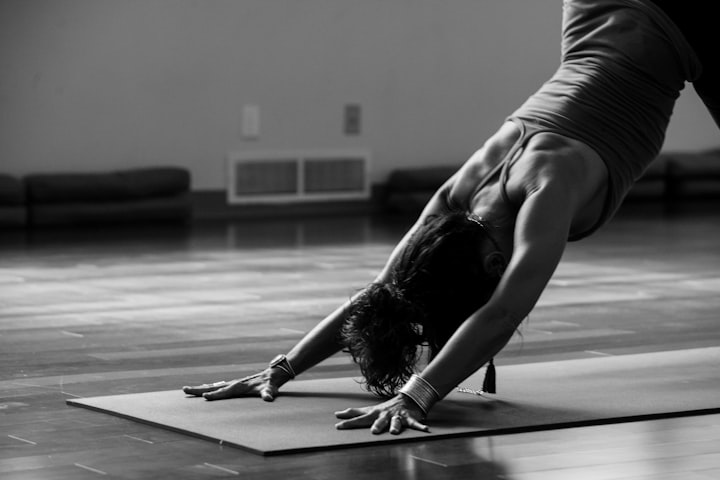The Guiding Hand of a Guru: 12 Ways to Deepen Meditation and Mindfulness Practices
"Unlocking Inner Tranquility: A Guru's Guide to Enhancing Meditation and Mindfulness"

Introduction
In the rapidly moving pace of the world, the age-old practices of meditation and mindfulness are more pertinent than ever. They offer an oasis of calm, helping individuals to reconnect with their inner selves, fostering emotional stability and mental clarity. For many, the journey into meditation and mindfulness is often guided by a guru or a holistic therapist. Here are 10 ways they might guide you to enhance your practices.
1. Developing a Regular Routine: Establishing a daily meditation practice, even if it's only for a few minutes each day, can have profound effects. A guru can provide the necessary structure and accountability.Starting Small: It's not necessary to start with long periods of meditation. In fact, it's often more effective to start with just a few minutes each day and gradually increase the duration as you become more comfortable with the practice.
2. Choose a Consistent Time: Whether it's first thing in the morning, during a lunch break, or before bedtime, choose a time that works best for you. Consistently meditating at the same time can help establish the habit and make it a natural part of your daily rhythm.
3. Create a Comfortable Space: Having a designated space for meditation can support your practice. It doesn't need to be an entire room; a quiet corner with a comfortable seat will suffice. This space will serve as a physical reminder to practice.
4. Guided Meditations: A holistic therapist can lead guided meditations, which are particularly useful for beginners. They guide your focus and attention, helping you to navigate your internal landscape.
5. Understanding Mindfulness: Gurus can offer insights into the principles of mindfulness, teaching you to stay present, non-judgmentally, in the moment.
6. Mindful Exercises: Beyond meditation, mindfulness can be incorporated into everyday activities. A holistic therapist can provide exercises that integrate mindfulness into daily life, such as mindful eating or mindful walking.
7. Creating a Conducive Environment: The space in which you meditate can significantly impact your practice. A guru can guide you in setting up a serene, clutter-free space dedicated to meditation.
8. Breathing Techniques: Breathwork is central to meditation and mindfulness. Gurus can teach various breathing techniques that help focus the mind and stimulate relaxation.
9. Body Scans: This technique involves bringing attention to different parts of the body and observing sensations without judgment. It can be taught by a holistic therapist, enhancing awareness and relaxation.
10. Loving-Kindness Meditations: This practice cultivates compassion towards self and others. A guru can guide you through this meditation, fostering empathy and kindness.
11. Mindful Yoga: Combining physical postures with mindfulness, this practice can enhance physical health and foster mental peace. A holistic therapist trained in yoga can integrate this into your routine.
12. Handling Obstacles: It's natural to encounter challenges when meditating. A guru can offer personalized strategies to handle distractions, restlessness, or any other obstacles you face.
Conclusion
The deliberate and consistent practice of meditation and mindfulness can significantly contribute to mental health and well-being. These practices have been shown to induce structural and functional changes in the brain, specifically in areas associated with stress, emotion regulation, and attention. Moreover, they can enhance our neuroplastic capabilities, leading to improved cognitive function and resilience to mental health disorders. As a healthcare provider specializing in brain health and psychiatry, it is essential to recognize and promote these practices as powerful, non-pharmacological tools for mental health enhancement. However, it's also crucial to understand that they do not replace professional psychiatric care when necessary, but can serve as an effective adjunctive tool. Meditation and mindfulness are personal journeys of introspection and awareness - ones that can transform not just our minds, but our lives.
A guru or a holistic therapist can be instrumental in deepening your meditation and mindfulness practices. Their expertise, experience, and personalized guidance can provide you with the tools and techniques to effectively navigate your mindfulness journey. However, it's essential to remember that the journey into meditation and mindfulness is deeply personal. While guidance is invaluable, the transformations that arise from these practices ultimately depend on your commitment and patience.
About the Creator
Januario Leal
Januário Leal, a versatile media content producer, captures the essence of human experiences through his evocative photography and immersive videography, consistently pushing creative boundaries.
Enjoyed the story? Support the Creator.
Subscribe for free to receive all their stories in your feed. You could also pledge your support or give them a one-off tip, letting them know you appreciate their work.






Comments
There are no comments for this story
Be the first to respond and start the conversation.